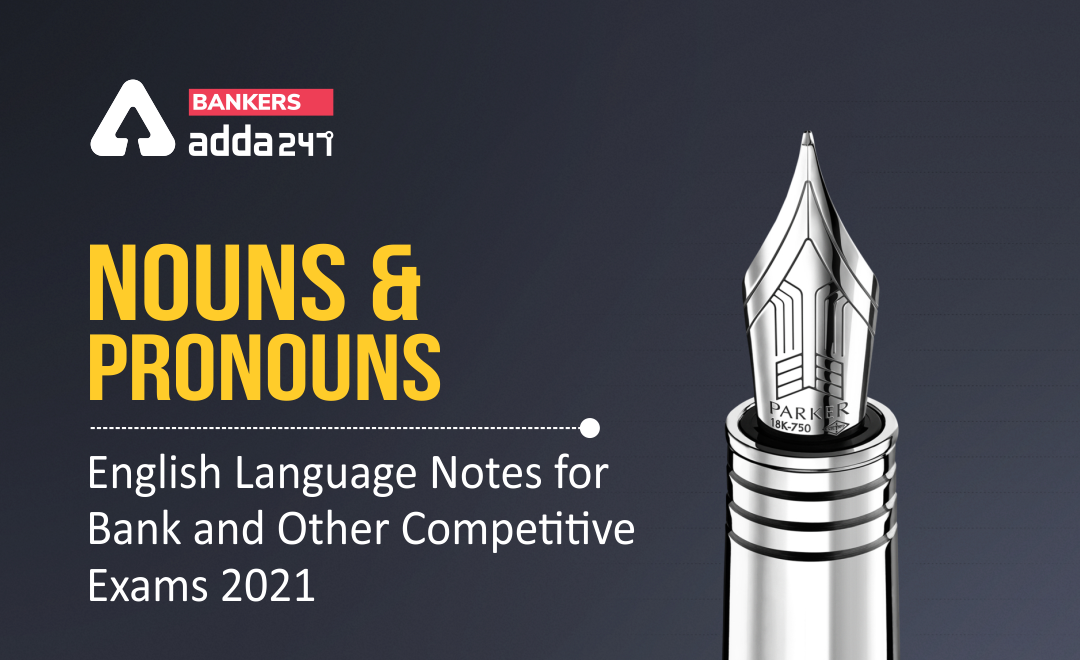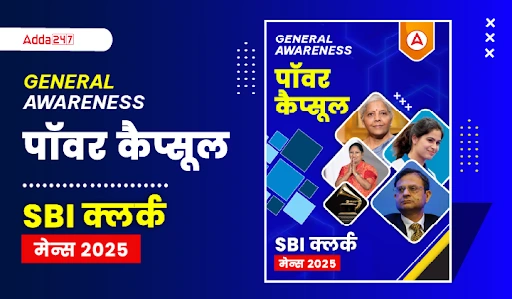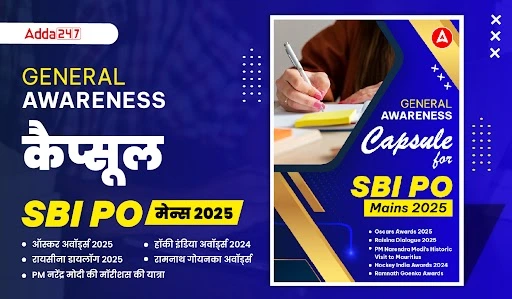Nouns & Pronouns: English Language Notes for Bank and Other Competitive Exams
आगामी महीनों में प्रीलिम्स और मेंस दोनों तरह की परीक्षाएं होने जा रही हैं. जिनके लिए आप सभी आवेदन कर रहे हैं या कई आवेदन कर भी चुके होंगे. ऐसे में जरूरी है कि आप आवेदन के साथ ही, अपनी तैयारी को भी साथ साथ जारी रखें. हम सभी जानते हैं कि किसी परीक्षा को पास करने के लिए हमें परीक्षा के हर सेक्शन पर अधिक ध्यान देने की जरूरत होती है.
English Language एक ऐसा सेक्शन है जिसमें अगर आपने बेसिक क्लियर कर रखा है तथा इसके प्रश्नों की आपने अच्छे से प्रैक्टिस की हुई है तो आप आसानी से इस सेक्शन में एक अच्छा स्कोर हासिल कर सकते हैं. आज इस आर्टिकल में हम आपके लिए लाए हैं English Language सेक्शन को तैयार करने के लिए खास टिप्स, जिन्हें फॉलो करके आप इस सेक्शन में अच्छा स्कोर कर सकते हैं.
Nouns –
Scissors; trousers; pants; shorts; spectacles; goggles; binoculars; sunglasses; amends; archives; congratulations; fireworks; outskirts; Shambles; Braces; Embers; Athletics; Belongings; Proceedings; Surroundings; Tongs; Vegetables; Valuables; etc
> Following nouns are Singular in form but Plural in meaning, i.e. they look to be singular but are plural, and hence take plural verb:
Cattle; Cavalry; Infantry; Poultry; Police; People; Children; Peasantry; Gentry, etc.
> Collective nouns are ALWAYS singular:
> The Following nouns are the same in Singular as well as Plural forms:
Sheep; Deer; Series; Species; Fish; Crew; Aircraft; Counsel; Team; Jury, etc.
> The following are uncountable nouns and hence will take singular verb with them (A/An/many/few/number of and plural forms are NEVER used with these) –
Poetry; furniture; advice; information; baggage; stationery; business; crockery; News; Percentage; Pottery; Work(literary work); Cost; Equipment; Postage; Hair; Scenery; Dirt; Dust; Fuel; Traffic; Music; Evidence; Wastage; Jewellery; Electricity; Money; Mischief; Luggage; Knowledge; Crockery; etc.
For example –
> Reflexive Pronouns – Myself, himself, herself, itself, yourself, Yourselves, themselves; ourselves.
For example:
Rohit saw me in the mirror. (Correct) Here, ‘Rohit’ and ‘me’ are different people. ‘Me’ refers to the speaker.
Payal made herself fruit juice. (Correct – because the subject and object are same)
For example:
| Relative Pronoun | Used for | Used as |
| Who | People | Subject |
| Which | Things/animals | Subject/Object |
| Whom | People | Object |
| Whose | People/Things | In place of possessive pronouns; subject as well as object. |
| That | People/Things | Subject/Object |






